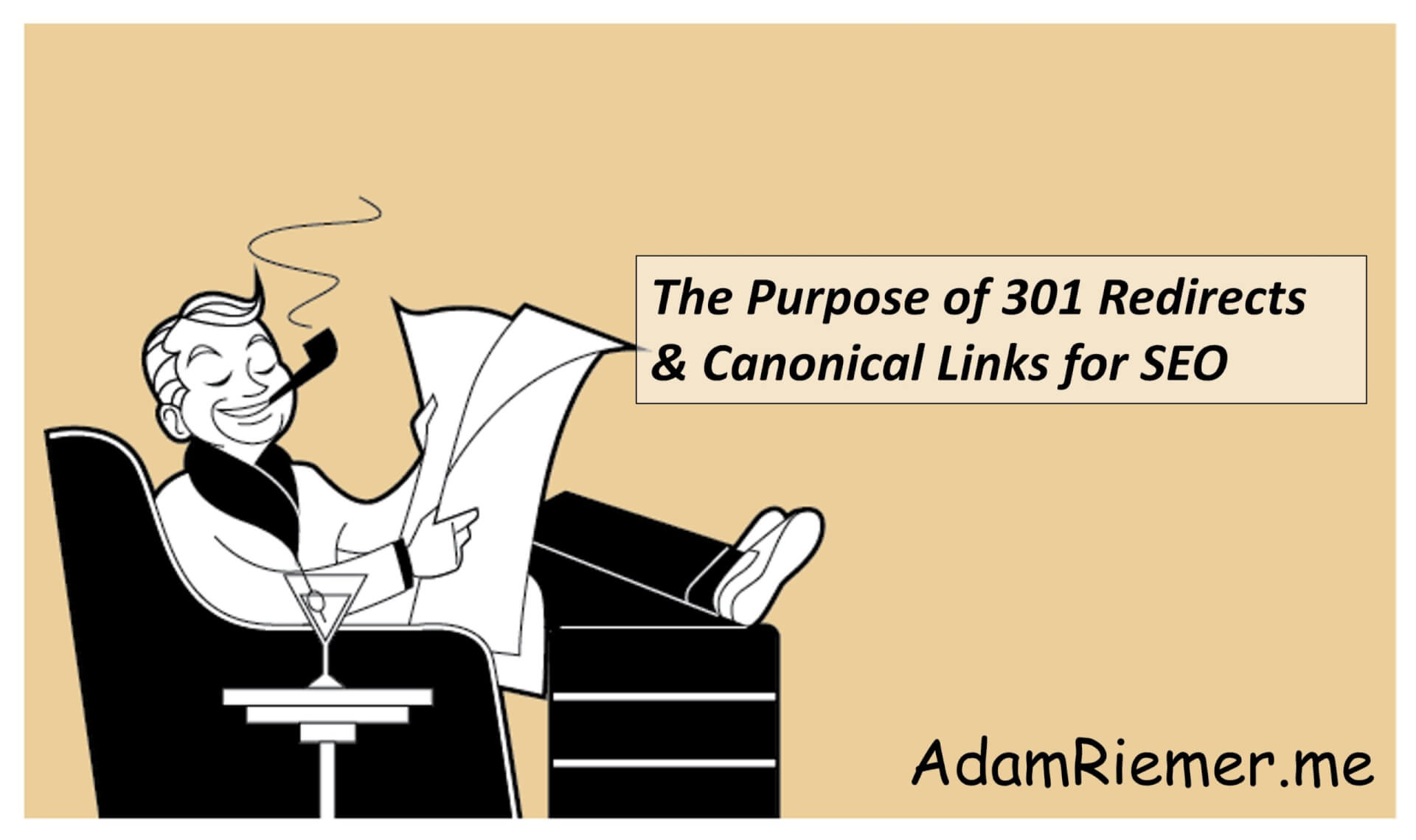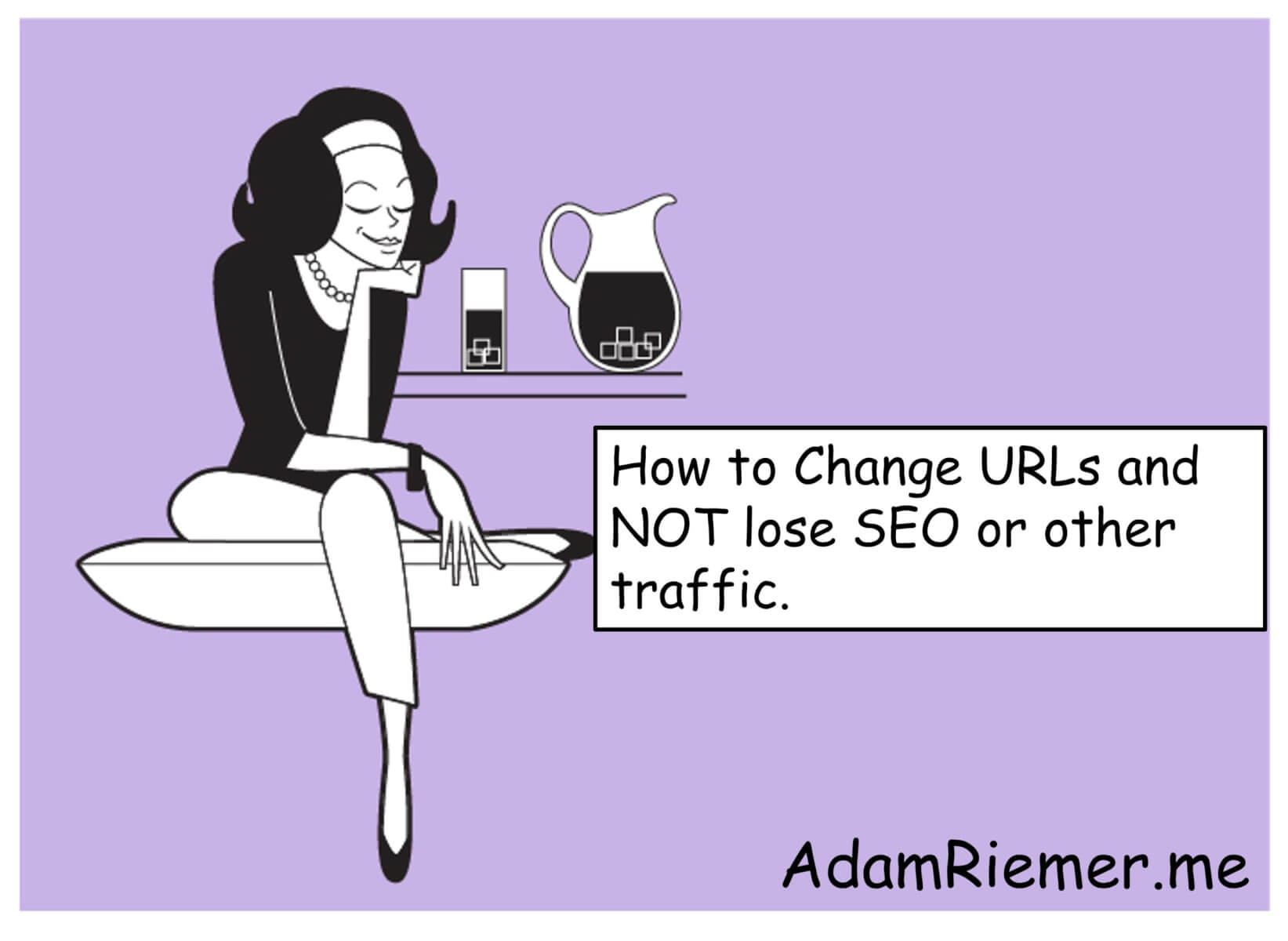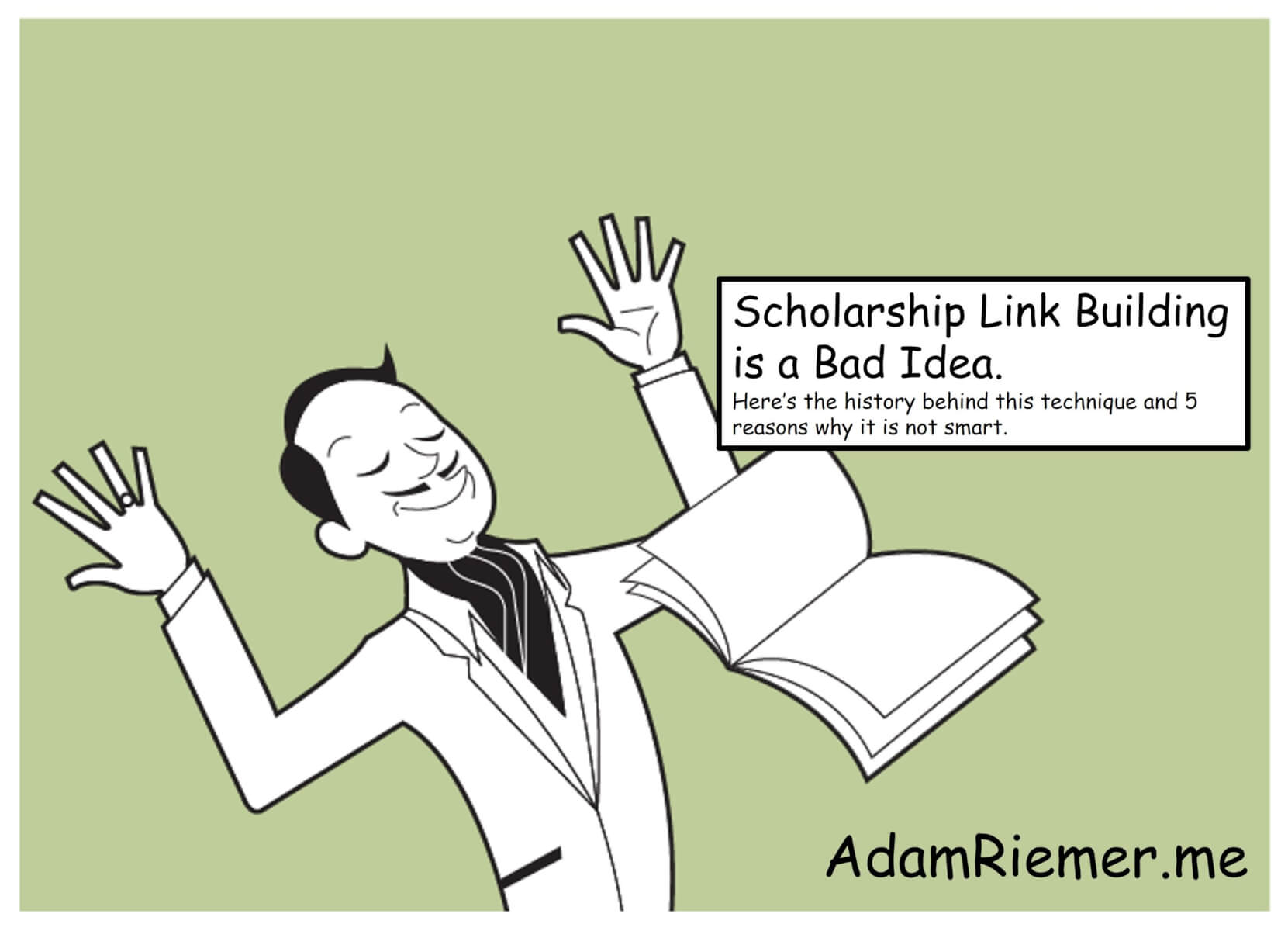I was asked to write this post about 8 or 9 months ago for a conference blog, but they never published it so I decided to publish here. It is in response to a question they keep getting asked,...
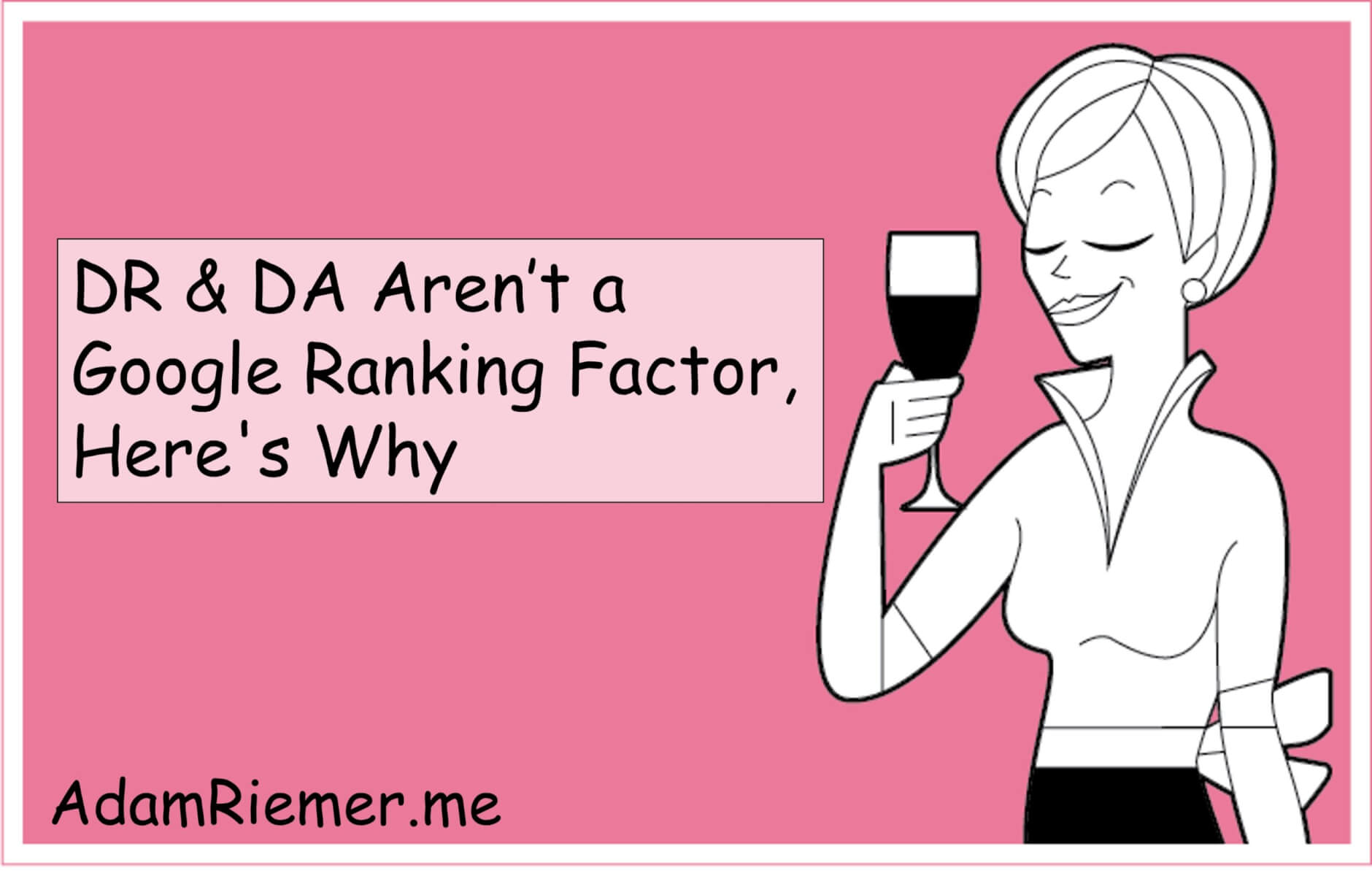
I was asked to write this post about 8 or 9 months ago for a conference blog, but they never published it so I decided to publish here. It is in response to a question they keep getting asked, but in different forms. Attendees ask how Google in particular uses domain rank, domain authority, toxicity scores, etc… and how they impact the way Google sees a site or backlink as good or bad.
People assume these “metrics” are datapoints or ranking signals that search engines use. This is because some SEOs focus on backlinks from sites with high scores while avoiding sites that have bad scores. My answer is the same answer from Google. Google does not use DA, DR, AS, or any other tool based metric.
These scores have nothing to do with SEO outside of how that tool views a website. Each SEO tool metric is a scoring mechanism using that tool’s datasets. None of the data is related to the actual search engine algorithms, but is based on what the tool views as important. The tool shares information in general, and not specific to your website. What is an issue for sites in general may not be an issue for you, so the tool’s reports could also be misleading. A good example is noindexing pages.
We noindex landing pages and others that aren’t supposed to be indexed or displaying, but the tools flag this as SEO problems. They’re not. And by creating a proper crawl and architecture for search engines, these “mistakes” actually benefit the website’s SEO.
With that said, these tools can be used to determine a site’s potential health if the data is good and you apply it situationally to your site.
Confusion point: Page rank is an actual part of Google (although minimal), and the name page rank is part of the cause of the confusion as it sounds similar to what the tools use.
My advice is to ignore these scores. Focus on providing a good user experience. Get backlinks from websites where your customers actively engage or go for research, and look for ways you or your brand can become a trusted authority so people begin coming to you directly via social media sharing and referrals. This can lead to natural backlink acquisition and revenue. And that is what matters, not a score or measurement from an SEO tool.
The only time a metric like domain authority matters is if you’re selling backlinks, which you should not be doing. Link companies that I would consider spammy use these metrics to convince people there is value in the site. Although these metrics can be an indicator of overall site trust by the tool, but they have no impact on actual SEO and do not mean a link from the website will be good or helpful.
Below are two examples with websites that have high scores in the tools, but are both losing traffic regularly. I’m using SEMrush here, but AHREFS, MOZ, and others show the same for these sites.
Please note I have no relationship with the two following websites. They do participate in affiliate programs I did affiliate affiliate program audits for, so they hit my radar when I saw traffic and sales fall.
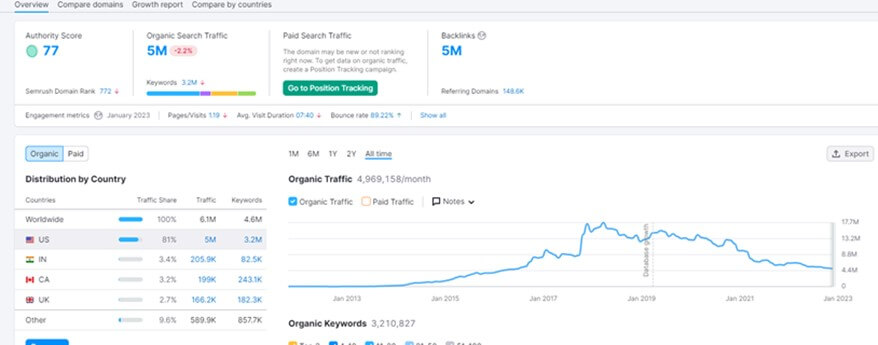
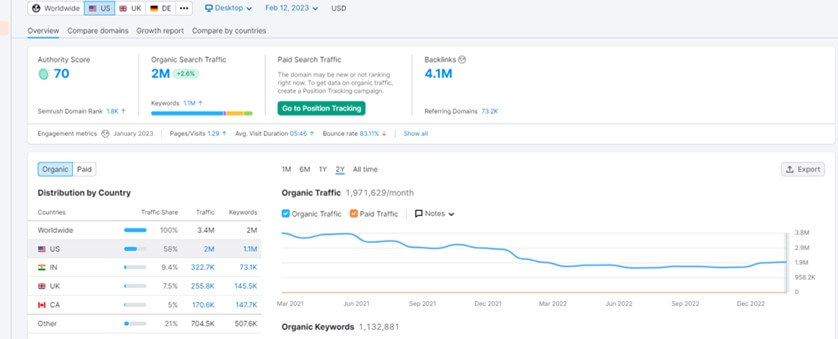
Even though they have high authority scores, they’re losing traffic. Search engines use their own scoring system, and they have subsets of algorithms that use their own scores based on the niche you are in.
Let’s use the core algorithm. It evaluates pages and websites to figure out if the site or page should be shown for a query, and which query it should be shown for. And there’s the helpful content update. This one looks at how helpful your entire site is, not just specific pages of content. Everything needs to be on topic and high quality if you want rewarded by Google, not just backlinks and not just specific “SEO” pages. I have this guide on creating helpful or useful content.
Google also has niche algorithms for reviews, medical advice, anything that impacts your life or pocketbook, etc…
If you’re providing medical advice or services, you’re going to have to pay attention to the medic updates. A unique scoring system Google uses to determine how trustworthy the content, author, and website is because the person searching is looking for information and services that will impact their health. If Google surfaces incorrect medical information, a person could literally die.
If you’re providing loans, helping with trading stocks, or giving investing information, you have to pay attention to YMYL (Your Money Your Life.) Just like medic, the information that this algorithm evaluates has a direct impact on a person’s life. Google wants to make sure the information comes from the most trustworthy sources possible. And that leads to E-E-A-T.
Experience, Expertise, Authority and Trust. This is a fancy way to make sure the author has direct experience, the content is written or fact checked by a licensed and certified professional, things are sourced to trustworthy places (yes you should give backlinks too), and there are unique concepts and solutions being provided that only a true expert would know. And this applies the most to affiliate websites. Let’s use reviews as our example here.
Google’s reviews algorithm checks for things like original imagery to show you actually have the product. And because you actually have and use the product or service, Google is also looking for original information about it including:
How long it will last, what it is compatible with, if there is a cheaper option Pros and cons not featured on the manufacturer’s website Interesting use cases not available on other reviews The option to purchase from multiple stores, service providers, etc… Other information that only an actual user would knowAnd all types of content should pay attention to E-E-A-T. If you write recipes, add any certifications, awards, degrees and places you’ve been featured into your bio page. If you can, add an author box to the bottom of the post and link it to your full bio page too. This applies to crafting, fashion, and lifestyle bloggers too.
If you offer training, fitness, or nutrition advice, it is a good idea to source studies you completed that have been peer reviewed and published in journals. You’ll also want to include years of experience as a full-time industry professional on top of the certifications. And if you’re featured in the media, share recent coverage in major publications, not articles from 10 years ago.
Domain authority, domain rank, and other tool created metrics are great if you’re selling backlinks, or need to keep your boss happy. But if you’re doing SEO and want to grow your website traffic, focus on things that matter, not what a tool says. Tools cannot dissect your website; they give general advice based on the masses. Every site has unique nuances, and tools cannot fix those. DA, DR and other metrics do not apply to them. That does not mean tools are bad.
I use SEMrush every single work day. And I have used lots of other tools from Majestic to Buzzstream. Tools save you time, help you grasp how a site is doing, and speed up your job to get a website ranking. Just remember that their metrics are based on their data, not what the search engines like Google actually use. Once you use your own data and combine it with the power of the tools you prefer, that is when you’ll be able to start growing your SEO traffic.
The post DR & DA Aren’t a Google Factor for SEO – Here’s Why appeared first on Adam Riemer Marketing.



